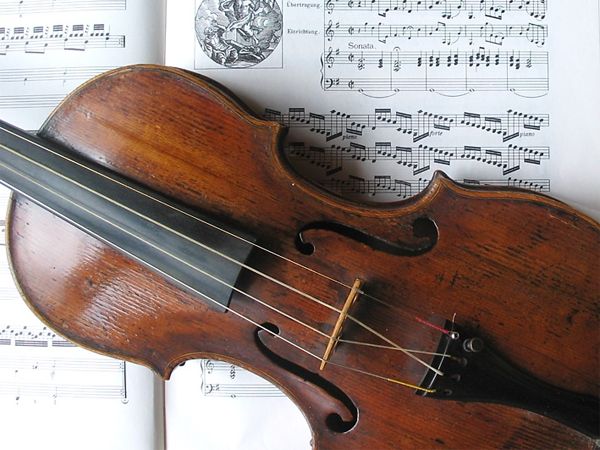Spider silk is a spectacular and uncommon protein fiber spun by spiders. Its mechanical properties have been exploited for thousands of years, in particular those of the dragline silk variety, which we will discuss after the break. Intrigued by the exceptional properties of this organic material, researchers in Iowa and Japan made extensive research, and, in fact the later has been working for the past one decade to spin tiny filaments of spider silk into violin strings. The Japanese counterpart claims that the sound produced by these strings is way too superior and the notes flow with an unmatched brilliance.

According to Shigeyoki Osaki of Nara Medical University, Japan, the tensile strength of the spider silk dragline is very much comparable to high grade alloy steel and it has about a sixth of the density of steel. Also it is especially ductile and can stretch up to four times its length without breaking.
Keeping all the above in mind Osaki decided to coax the silk dragline from the orb weavers bred in captivity. He would bundle about 3000 to 5000 strands for one piece. Three of these would then be bundled into a single tightly packed string.
The final outcome was that the violin played soft and profound notes, more vivid and pleasant to hear. And, this was not just the researcher’s verdict based on his instinct, but he had tested these strings against those made from steel, gut and nylon and then made the declaration.
Also as stated earlier, at the same time, Xinwei Wang, associate professor and his research team at the Iowa State University, discovered that spider silk is 1000 times a better conductor in comparison to woven silk and about 800 times better than other organic materials.
We will have to wait slightly more to learn about the feasibility of producing spider silk, and, until then, listen to the string notes of the violin and discover new depths of the violin strings.
Via: CNET




